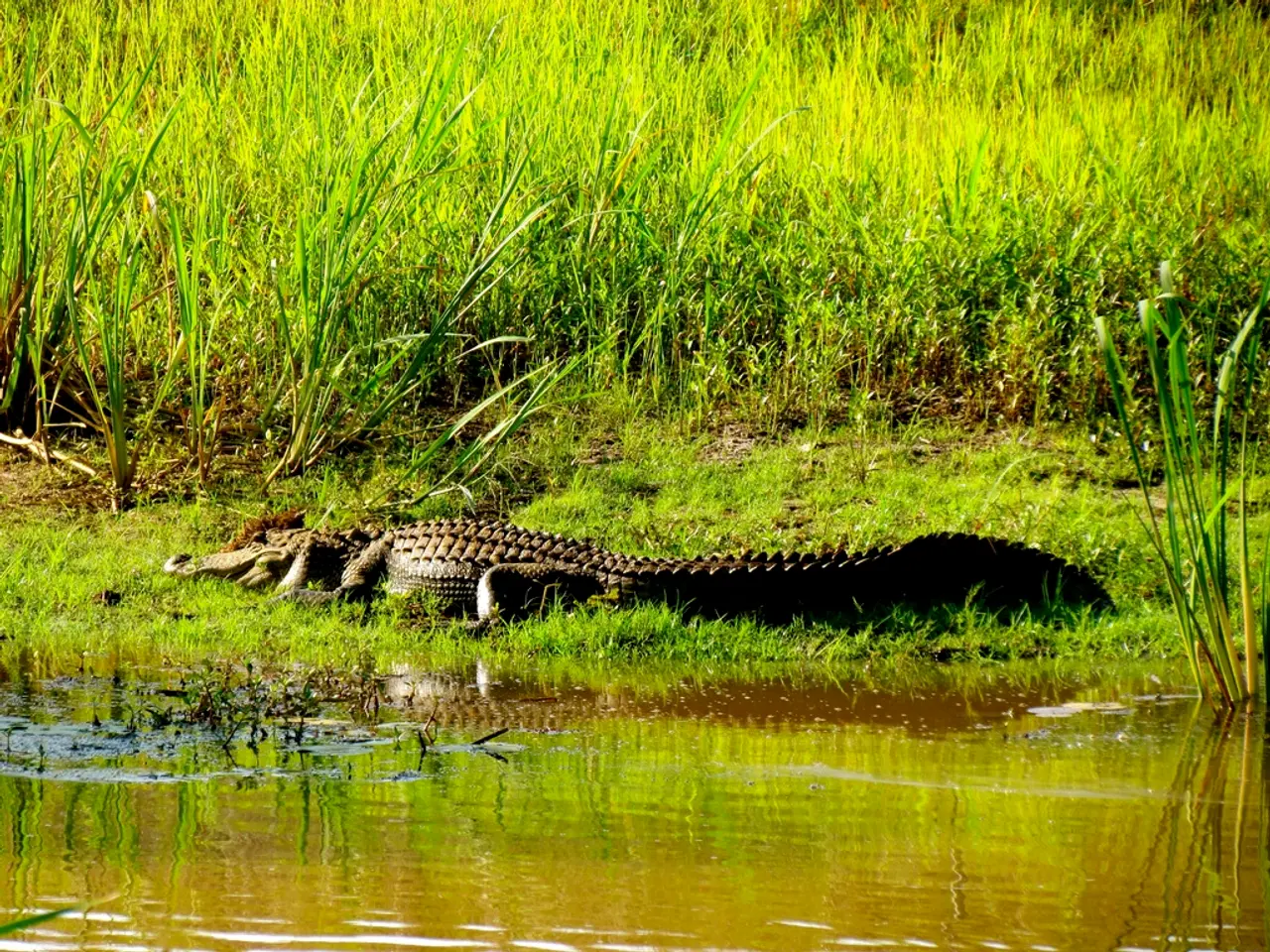Mars plant survival discovery lays groundwork for space colonization efforts
In a groundbreaking development, NASA has published a study on July 1 that provides a potential foundation for colonizing space using plants adapted to extreme stress conditions. The study, however, does not involve the use of autonomous factories in space, as some might have speculated.
The research, led by moss specialist Stuart McDaniel from the University of Florida, focuses on the crucial role of plants in long-term space missions. Terrestrial plants, as we know, convert carbon dioxide and water into oxygen and carbohydrates, which are essential for human survival.
The study simulates the living conditions of various planets, including Mars, to understand how plants could thrive in these extreme environments. While the experiments do not guarantee 100% reliability, the findings are described as "encouraging."
It's important to clarify that, as of the latest information in 2025, no plants have been discovered on Mars by NASA that could aid in long-term space missions or colonization. The Mars rovers, including Curiosity and Perseverance, have primarily discovered geological features such as ancient water-related minerals, hematite spherules, and rock formations shaped by wind erosion over billions of years, but no biological life forms like plants have been detected.
NASA's efforts on Mars are primarily focused on habitat simulations and technologies to support future human missions. For instance, the Mars habitat analog in Houston is used for mission preparation, focusing on human habitation and environmental control rather than discovering native Martian plants.
Meanwhile, Space Cargo Unlimited, a company not mentioned in the context of the NASA study, is preparing for the liftoff of autonomous factories in space. The details of these factories are yet to be disclosed, but they are expected to contribute significantly to space exploration and colonization in the future.
In conclusion, while no native Martian plants have been discovered that could directly aid space missions or colonization efforts, the NASA study offers promising insights into the potential of plants adapted to extreme stress conditions for future space colonization. The search for life on Mars continues, and with advancements in technology and research, we may soon find the key to making Mars a habitable planet for humans.
[1] NASA (2021). Mars 2020 Perseverance Rover. Retrieved from https://mars.nasa.gov/mars2020/
[2] NASA (2012). Mars Science Laboratory. Retrieved from https://mars.nasa.gov/msl/
[3] NASA (2021). Mars Habitat Analog Research Station (MAARS). Retrieved from https://www.nasa.gov/mission_pages/station/research/experiments/2004/MAARS.html
[4] NASA (2021). NASA's Mars Exploration Program. Retrieved from https://mars.nasa.gov/marsprogram/
[5] NASA (2021). Mars Exploration Program Analysis Group (MEPAG). Retrieved from https://mars.nasa.gov/mepag/
- The NASA-led research on plants in extreme stress conditions, focusing on space colonization, showcases the intersection of science, health-and-wellness, and space-and-astronomy.
- Though no life forms, such as plants, have been found on Mars to aid in space missions, the study highlights the potential role of resilient plants in future health-and-wellness and space-and-astronomy endeavors.




